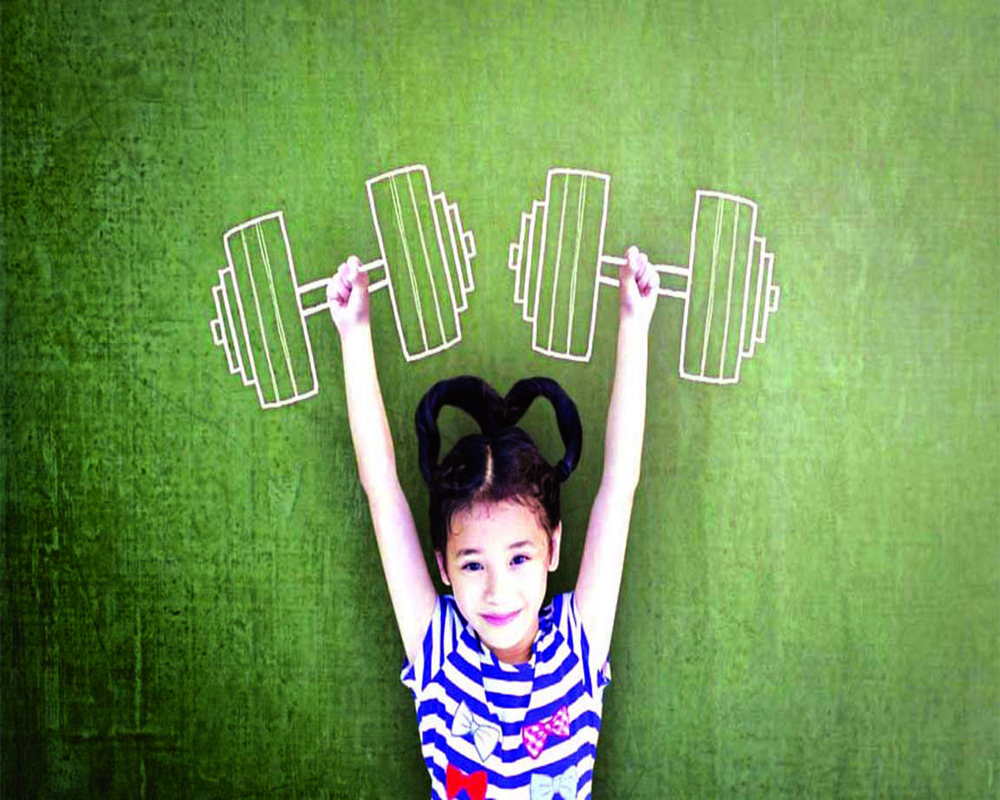Self-esteem is how we operate in the face of challenges. It is not how others deal with us, but the way we deal with ourselves and the world, writes Shobha Nihalani
Never before have we faced such a disruptive world. It is not surprising, therefore to discover that so much upheaval can adversely impact how we feel about ourselves. The pandemic and lockdown has left many jobless or with an insecure future, plus difficult home dynamics, all of which result in battered egos and low self-esteem. Many struggle to find the self-motivation to pick up the pieces of their life and rebuild. For most people it has become a wellbeing issue.
It’s this struggle with the change in lifestyle that has resulted in increasing sense of loneliness. Some are looking to social media for validation or reassurance and this can have the opposite effect on self-esteem. I don’t wish to say that social media is all bad, one can also be comforted by using these sites, especially if you use the platforms to keep in touch with long distance friends and relatives, or be in touch with an extended social circle during the lockdown. But, even during those testing times, being on social media shapes the minds of millions of people.
Emotional turbulence is hardly visible. When a person is suffering internally, no one can see the struggle and the pain. The troubled individual may feel useless and unworthy.
Nothing is more important than the judgment we pass on ourselves: how we esteem ourselves touches the very core of our existence. Self-esteem is considered the most relevant to live a fulfilling life, it essentially refers to the way we view our selves — good or bad. Self-esteem is not a luxury but a vitally important psychological strength.
If you have healthy self-esteem, your beliefs about yourself will often be positive, you feel good about yourself, and see yourself as deserving the respect of others. You may experience difficult times in your life, but you will generally be able to face them with resilience, without having too much of a long-term negative impact on you.
If you have low self-esteem, your beliefs about yourself will often be negative, and you put little value on your opinions and ideas. You will tend to focus on your weaknesses or mistakes, and may find it hard to recognise the positive things about yourself. You may also blame yourself for any difficulties or failures that you have.
A particularly interesting catchphrase was described by Nathaniel Branden author of The Six Pillars of Self-Esteem. He described self-esteem as ‘immunity of consciousness.’ Now more than ever it seems relevant in these trying times.
Self-esteem is a particular way of experiencing the self. And if that self is at war because of outside pressure then life is full of suffering.
As we grow up, with a certain level of education and parental guidance, we assume that we will be well-adjusted individuals capable of achieving goals and facing problems with ease. But that is not always the case. Often, when we face certain obstacles in life, we realise a lot about our weaknesses and inner strengths. Self-esteem is how we operate in the face of challenges. It is not how others deal with us, but the way we deal with ourselves and the world.
The effect on the younger generation
Recent studies show that the lockdown and restrictions has had a significant impact on the education, well-being, and mental health of children.
Children are vulnerable to the behaviours of the adults around them. And the messages children hear become internalised in their inner talk. As a result, self-esteem issues start from a very young age. Once an unhealthy belief is formed, the child internalises this way of thinking into adulthood. It has become even more important to care for the mental well-being of the child during the lockdown.
Parenting is difficult and takes a great toll on families when everyone is confined at home. The “new normal†means that the way we interact with each other has changed. Just stepping out of the house can make one anxious. If a child is already prone to anxiety, the social distancing aspect can seem like a form of rejection. To top it off, masks can contribute to anxiety in different ways. Masks hide half the face, making it difficult to read social cues, like smiles or frowns. And when we want to find ways to relax, breathing deeply is commonly suggested. How to breathe deeply under a mask? That said, masks are critical to protecting against Covid-19, and most kids have adapted well to wearing them.
While parents have to find ways to be proactive and patient, plus keep a cheerful environment, it can create a strain. Therefore, parents should first reevaluate whether their own emotional and psychological needs are met.
We all have heard of the airplane safety tip to always put on one’s own oxygen mask before helping a child: the same applies with emotional balance, according to psychologists. When parents mindfully manage their anxiety and stress, through activities like exercise, good sleep, and relaxation, this enables them to cope and to respond calmly with their children. By behaving in this manner, this also teaches children, who learn by example, that they too can cope and manage in stressful situations.
Children rely on their parents for support, both physical and emotional. Therefore, when parents are available fully, mentally and physically, the child feels secure.
With the pandemic lockdowns, school closures, and social distancing, many children are deprived of the everyday experiences that normally build their sense of worth as a unique individual. Self-esteem is a critical element of children’s mental health. Children with higher self-esteem tend to have happier lives, better relationships, and fewer symptoms of anxiety and depression. However, routine needs to be maintained, any disruption can affect mental and emotional health.
Recent research indicates that the increase in social isolation and loneliness is linked to mental health problems, such as depression and anxiety, self-harm, and suicidal behaviours. Children who are confined at home with their parents due to Covid-19 may feel more stressed and anxious.
To create a foundation for children’s self-esteem during the pandemic, parents can still do something about it.
According to studies in child psychology, children’s self-esteem is built on two pillars: Appreciation and aptitude. Children feel good about themselves when they feel loved and supported by significant others (appreciation) and when they master new skills to achieve their goals (aptitude).
Appreciation
Parents can build safe and supportive relationships with their children, like maintaining a comfortable home atmosphere. Children can sense tension in a household, and being home all day can aggravate the situation. Ideally, maintaining a routine as though kids are going to school, can maintain a sense of security. Daily routines give children a sense of stability and predictability. Consistent rules help bring structure to children’s lives and combat the sense of disruption and chaos surrounding so many of us.
Another way is that parents can show interest in their children’s activities by asking questions about their day, and what they enjoy doing. Encouraging them to journal their thoughts and ideas is another way the child can release some of their pent-up feelings. A family activity, like board games or kitchen work, anything that creates a comfortable routine, can improve and maintain the emotional and mental health of the child. Spending time is key so that the child feels comforted and safe, and able to share his or her fears about the pandemic.
No doubt, children miss their friends; their interactions are an important source of self-esteem. Parents can help children meet up with friends online through games or video chat apps. But maintain a time limit.
Although these seem like insignificant activities, this approach may create a healthier self-esteem in the growing child.
Aptitude
Children benefit from watching adults who fail but learn from their mistakes and keep on trying. Children are born curious and spontaneously want to practice new skills, encourage them to keep trying. Avoid criticising their mistakes or failed attempts. Let them figure it out for themselves. Children tend to feel motivated when they achieve a challenging game or skill. It helps them test their own abilities. And when they feel increasingly confident in their learning process, their self-esteem rises.
Amidst school closures, children may attend online classes, or maybe they are not getting any education at all. In these cases, a large burden is placed on the parents to keep up their children’s eagerness to learn. But stuck at home, how can parents nurture children’s interest and joy in learning? Some ways is to have a schedule like they have in school. Parents can encourage children to find a topic in science, geography, history that fascinates them. Then they are provided with the resources they need to learn more about it. They can use free educational resources such as National Geographic Kids’ YouTube channel; create art projects also shared online; and help children build structures with Legos, blocks, or even household items.
In these activities, it is critical for children to experience a sense of learning and growth. Even small steps on the road toward self-improvement should be celebrated. When children know they are improving themselves, they feel proud and eagerly seek out more activities to hone their skills.
And finally, it may be most helpful to remember that children do better when their parents are doing well. Under stressful conditions, it is more important than ever that we make time for our own tried-and-true mental wellness strategies, be it paying attention to nutrition, meditation, turning cell phones off in the bedroom, reaching out to a friend or if need be, connecting with a mental health professional.
The writer is a Life Coach and an author. She has recently published her book, Reboot, Reflect, Revive: Self-esteem in a Selfie World, with SAGE Publications India


























